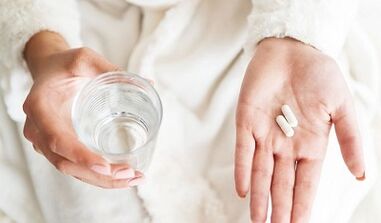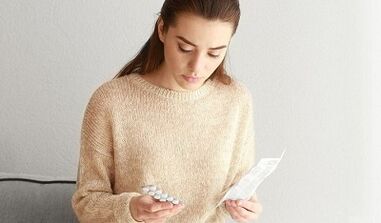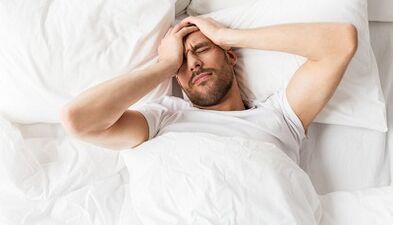When taking drugs, people are often confronted with the problem: how long can you consume alcohol after antibiotics.It is difficult to say how long to completely remove medicines from the body - no doctor will answer this question because the effects of all antibiotics are different.In fact, there are diseases where the patient is prescribed not only antibiotics but also a special diet.In this case, alcohol is prohibited.
About drugs

Antibiotics - products of the life of microorganisms (most commonly fungi and synthetic derivatives).They are used to treat infections caused by bacteria.Each is produced in capsules and tablets because they are very comfortable.
However, there are general betting rules for all antibiotics:
- Any medicine can only prescribe a doctor, depending on the severity of the disease and the characteristics of the patient's body.
- Antibiotics are not used to treat viral diseases.
- The result of any antibiotic effect is taken into account in the first three days - if the drug helps, it is not recommended to interrupt treatment.If the symptoms continue, consult a doctor again.
- The course of treatment does not stop if the nausea or mouth is unpleasant.
- You cannot check the dose prescribed by your doctor - too small the dose of antibiotics is dangerous to the human body.
Important!It should be remembered that self -healing is always dangerous to the body.
The time depends on many factors that are needed to remove the antibiotic from the body.Each drug has its own characteristics, but most of the body are in the urine or (if the dose is small) in the intestine in the form of bile.Very small portions may appear in other ways: sweat, sebum, salivary glands or sputum.
If you need to know how to remove a particular medicine, you must read the instructions.For any antibiotic, this information is contained in the pharmacokinetics element.

Some drugs can be excreted after 6-12 hours, but there are some that are late for 1-2 weeks in the body.
In addition, it should be kept in mind that the muscle tissue quickly removes the antibiotic after fat and only bone.
Standard and most important, after successful treatment of antibiotics, alcohol should not be drunk for 3-5 days.
But there are exceptions in chronic diseases when the treatment process is done several times.In this case, staying from alcohol is 2-4 weeks.
Alcohol during treatment
If a person is prescribed a course of antibiotics, it is strictly forbidden to drink any alcohol.Doctors note that more effective treatment for people who do not drink alcohol during or after the disease.
- The most important reasons are the interaction of alcohol molecules and antibiotics.In this situation, toxic substances can be released.
- Based on the background of alcohol, the antibiotic will be less effective or useless at all.
- Hepatotoxic alcohol antibiotics (affect the liver).If you use them at the same time, the liver load increases.
If you can consume alcohol after taking antibiotics and how much, it is best to ask your doctor to avoid unpleasant consequences.
In any case, there is a small group of antibiotic to allow alcohol to be allowed.They belong to:
- antifungal;
- penicillins;
- Heliomitsin;
- Ansomicin;
- glycopeptides.
The speed of removing funds
For a long time, a person felt the toxic effect of antibiotics.
As mentioned above, it appears in most urine.All drugs are absorbed and besieged in other durations.
If you have such a chance, it is better not to buy alcohol.
Post -disease immunity is not always ready for the toxic effects of ethyl alcohol.
What touches him
The main factor that affects the speed of selection of medicine is the chemical composition.But the path of introduction of the antibiotic is also important.The parenter road (bypassing the digestive system) operates more efficiently and faster (withdrawn for 16-24 hours), but the specialist must be injected.At home, the Entral Road (through the stomach tract) - tablets and capsules can be taken in themselves.
The time you need to remove the antibiotic from the body may depend on age - it happens more slowly than people of advanced age.In addition, selection can inhibit the work of the kidneys, liver or geniturinary system.Toxins are excreted faster with a drink of abundant drink or fermented dairy products.
The consequences of a common bet

People often, without hesitation, drink alcohol with antibiotics and claim that the commentary does not indicate how long it cannot drink alcohol and how it is usually taken.However, it should be remembered that pharmaceutical companies produce antibiotics for treatment, not for the combination of alcohol, so they will not check such reactions.
None of the doctors can predict the exact reaction of the body and how it affects the course of the disease.The use of alcohol during antibiotics can have serious consequences.Consider some:
- Violation of liver functions.In this case, the liver cannot remove harmful products, but absorbs all toxins into the cells.
- Severe allergic reaction (quinke edema, anaphylactic shock).
- The body may be intoxicated (nausea, vomiting, headache, cramps, abdominal pain).
- Heart problems may occur, stroke or myocardial infarction develops.
- Increased or decreased blood pressure (blood pressure).
It should be remembered that the combination of drugs and alcohol is not divided into ethanol.Therefore, the consequences are that most of the harmful substances of alcoholic beverages accumulate in the organs and tissues of a person.
The most dangerous "cocktails"
Many antibiotics are not compatible with any alcohol.For example:
- Fruitorchinolons, mixed with alcohol, affects the nervous system and can bring to a coma.
- Tetracycles are delayed in the body for a long time and are able to destroy some liver cells, so alcohol consumption is possible within three days.
- Aminoglycosides can cause complications for ear and kidneys (alcohol is possible after 2 weeks).
- The nervous system and liver are damaged by linosamides (alcohol is possible after 4 days).
- Macrolides can cause liver cirrhosis (alcohol is possible after 4 days).
All anti -tb drugs cause hepatitis, in which case all alcohol is prohibited.
First aid
The first action is a rescue call.Determine how much time has passed since poisoning and be careful to save the remains of the intoxication - this will help the doctor.
If the victim is conscious, you should drink large amounts of water and then cause vomiting by irritation of the back wall of the larynx.After washing the stomach, you should give the victim to all sorbents (such as activated carbon).
Place the patient in a comfortable horizontal position, observe breathing and pulse.Waiting for the ambulance to arrive.
Result
Antibiotics are a very severe medicine.A person taking antibiotics must clearly comply with the instructions related to these drugs.Not all antibiotics can be combined with alcohol, at best the drug will simply not help and, in the worst case, can cause death.























